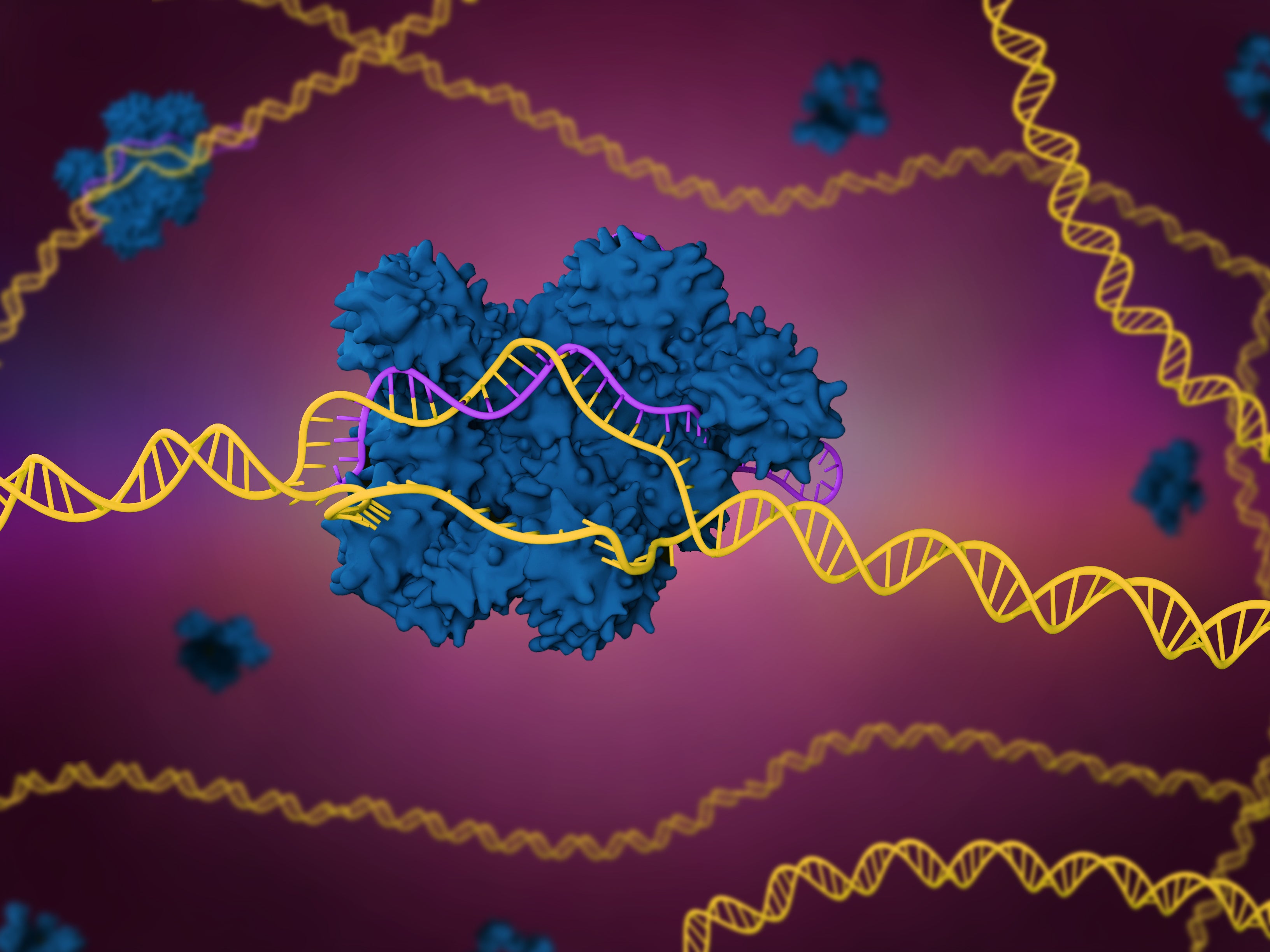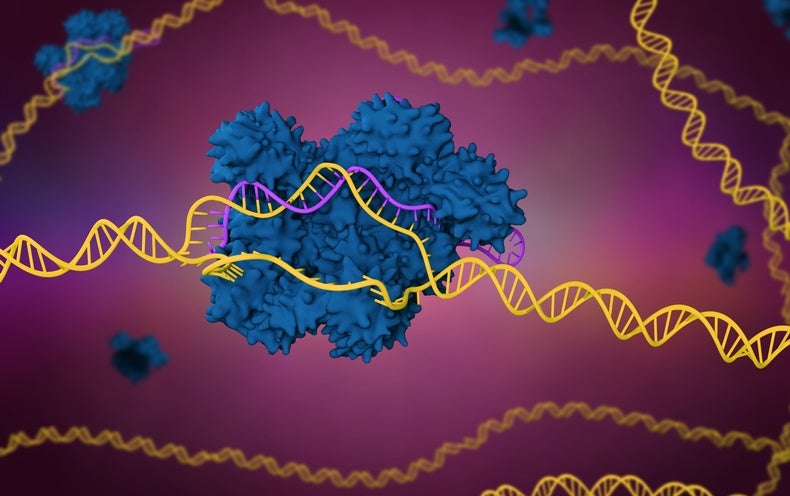
A small medical trial has proven that researchers can use CRISPR gene modifying to change immune cells in order that they are going to acknowledge mutated proteins particular to an individual’s tumours. These cells can then be safely set free within the physique to search out and destroy their goal.
It’s the first try to mix two scorching areas in most cancers analysis: gene modifying to create personalised therapies, and engineering immune cells referred to as T cells in order to higher goal tumours. The strategy was examined in 16 folks with strong tumours, together with within the breast and colon.
“It’s in all probability essentially the most difficult remedy ever tried within the clinic,” says research co-author Antoni Ribas, a most cancers researcher and doctor on the College of California, Los Angeles. “We’re attempting to make a military out of a affected person’s personal T cells.”
The outcomes have been printed inNatureand introduced on the Society for Immunotherapy of Most cancers assembly in Boston, Massachusetts on 10 November.
Tailor-made therapies
Ribas and his colleagues started by sequencing DNA from blood samples and tumour biopsies, to search for mutations which might be discovered within the tumour however not within the blood. This needed to be achieved for every particular person within the trial. “The mutations are totally different in each most cancers,” says Ribas. “And though there are some shared mutations, they’re the minority.”
The researchers then used algorithms to foretell which of the mutations have been more likely to be able to upsetting a response from T cells, a sort of white blood cell that patrols the physique on the lookout for errant cells. “If [T cells] see one thing that appears not regular, they kill it,” says Stephanie Mandl, chief scientific officer at PACT Pharma in South San Francisco, California, and a lead writer on the research. “However within the sufferers we see within the clinic with most cancers, sooner or later the immune system type of misplaced the battle and the tumour grew.”
After a sequence of analyses to substantiate their findings, validate their predictions and design proteins referred to as T-cell receptors which might be able to recognizing the tumour mutations, the researchers took blood samples from every participant and used CRISPR genome modifying to insert the receptors into their T cells. Every participant then needed to take medicine to cut back the variety of immune cells they produced, and the engineered cells have been infused.
“It is a tremendously difficult manufacturing course of,” says Joseph Fraietta, who designs T-cell most cancers therapies on the College of Pennsylvania in Philadelphia. In some circumstances, your entire process took greater than a 12 months.
Every of the 16 contributors acquired engineered T cells with as much as three totally different targets. Afterwards, the edited cells have been discovered circulating of their blood, and have been current in greater concentrations than non-edited cells close to tumours. One month after remedy, 5 of the contributors skilled steady illness, that means that their tumours had not grown. Solely two folks skilled unwanted effects that have been probably as a result of exercise of the edited T cells.
Though the efficacy of the remedy was low, the researchers used comparatively small doses of T cells to ascertain the security of the strategy, says Ribas. “We simply have to hit it stronger the subsequent time,” he says.
And as researchers develop methods to hurry up the therapies’ growth, the engineered cells will spend much less time being cultured outdoors of the physique and could possibly be extra lively when they’re infused. “The expertise will get higher and higher,” says Fraietta.
A strong begin
Engineered T cells — referred to as CAR T cells — have been authorised for the remedy of some blood and lymph cancers, however strong tumours have posed a specific problem. CAR T cells are efficient solely towards proteins which might be expressed on the floor of tumour cells. Such proteins may be discovered throughout many blood and lymph cancers, which suggests there is no such thing as a have to design new T-cell receptors for every particular person with most cancers.
However frequent floor proteins haven’t been present in strong tumours, says Fraietta. And strong tumours present bodily boundaries to T cells, which should flow into via the blood, journey to the tumour after which infiltrate it to kill the most cancers cells. Tumour cells additionally generally suppress immune responses, each by releasing immune-suppressing chemical alerts and by utilizing up the native provide of vitamins to gas their fast progress.
“The setting round a tumour is sort of a sewer,” says Fraietta. “T cells are rendered much less purposeful as quickly as they hit the positioning.”
With this preliminary proof-of-concept in hand, Mandl and her colleagues hope to have the ability to engineer T cells not solely to acknowledge most cancers mutations, but in addition to be extra lively close to the tumour. Mandl says there are a number of potential methods to toughen up T cells, for instance by eradicating the receptors that reply to immunosuppressive alerts, or by tweaking their metabolism in order that they will extra simply discover an vitality supply within the tumour setting.
Such elaborate designs could possibly be possible due to latest technological advances in utilizing CRISPR to edit T cells, says Avery Posey, who research cell and gene therapies for most cancers remedy on the College of Pennsylvania in Philadelphia. “It’s grow to be extremely environment friendly,” he says. “We’ll see very refined technique of engineering immune cells inside the subsequent decade.”
This text is reproduced with permission and wasfirst printedon November 10 2022.

